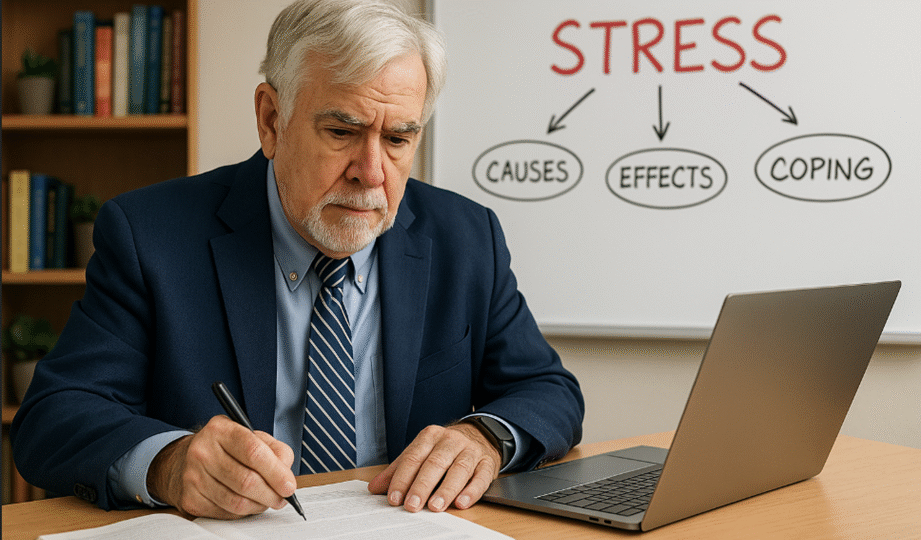
Professor Simon L. Dolan is widely recognized as one of the leading experts—or “gurus”—in the field of chronic occupational stress, due to a unique and sustained body of work, deep theoretical grounding, practical tools, and influential collaborations. His stature in the field can be explained by several key factors:
1. Early Mentorship by Dr. Hans Selye: The Father of Stress
- Hans Selye is universally acknowledged as the pioneer who introduced the concept of biological stress through his General Adaptation Syndrome (GAS) model.
- Dolan worked directly with Selye at the Université de Montréal, absorbing foundational insights and contributing to the medical and psychological framing of chronic stress.
- This mentorship gave Dolan privileged early access to neurobiological and psychosocial models of stress that would later underpin his occupational stress research.
2. Collaborations with Leading Scholars in Occupational Health
Dr. Susan Jackson (Rutgers University)
- Co-developer of the Maslach Burnout Inventory (MBI), the gold standard for measuring burnout.
- Former President of the Academy of Management (AOM).
- Together with Jackson, Dolan explored the intersection between burnout, stress, and human resource practices, focusing on how organizational dynamics influence employee well-being.
Dr. Arie Shirom (Tel Aviv University)
- Known for the Shirom-Melamed Burnout Measure and research on emotional and physical exhaustion.
- Dolan and Shirom collaborated on theoretical models linking occupational stress, work fatigue, and health outcomes.
Dr. André Arsenault (Montreal Institute of Cardiology – Canada)
- A medical doctor who bridged clinical and organizational health.
- With Arsenault, Dolan explored cardiovascular risks, emotional labor, and stress indicators in high-pressure environments.
Dr. Cary Cooper (University of Manchester)
- One of the most cited European scholars in occupational stress and workplace well-being.
- Dolan and Cooper jointly advanced cross-cultural perspectives on stress, addressing how globalization and cultural values influence organizational stress and coping mechanisms.
3. Developer of Applied Tools and Models
- Dolan didn’t just theorize stress; he created diagnostic tools and training models like the Stress Map, used widely in coaching and organizational development.
- He integrated values-based management with occupational health, offering a holistic framework for understanding and reducing chronic workplace stress.
4. Cross-Disciplinary and Global Impact
- Dolan’s work spans psychology, medicine, business, and education.
- He has published in multiple languages, with influence in Europe, North America, and Latin America.
- His framework links chronic stress with leadership, culture, and personal values, making it relevant not only to clinicians and psychologists but also to HR leaders and corporate executives.
5. Legacy of Scholarship and Mentorship
- He has trained and influenced thousands of HR professionals, consultants, and students worldwide.
- His academic positions (e.g., at ESADE, McGill, St Gallen and Oxford) gave him platforms to shape future research and policy on occupational stress.
- His values-driven approach is increasingly relevant in today’s VUCA world (Volatility, Uncertainty, Complexity, Ambiguity).
In Summary:
Simon L. Dolan is considered a guru in chronic occupational stress because:
- He was mentored by the originator of stress theory (Selye).
- He collaborated with other titans in stress and burnout (Jackson, Shirom, Cooper, Arsenault).
- He has bridged theory and practice, creating usable tools like the Stress Map.
- He integrated values, leadership, and well-being in a systemic model.
- His work has had a global, interdisciplinary, and lasting impact.

